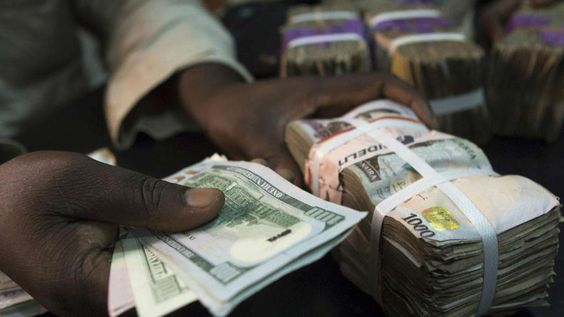Business
Naira depreciates against the dollar and trades at N848/$ on the official market

According to data from FMDQ, the Nigerian naira concluded Tuesday’s official market trading at a record low of N848 per dollar as dollar shortages continue.
This constitutes the biggest one-day decrease of the entire month.
Due to strong dollar demand, the currency on the black market fell to a low of N1,050 per dollar.
On Tuesday, one of the vendors claimed that people who need to travel for work, school, healthcare, or tourism were purchasing dollars from the street vendors because the official market was unable to accommodate their needs.
Tuesday afternoon saw an all-time low for the Naira against the dollar of N1,050 due to a high demand for dollars on the parallel market, also known as the black market.
Comparing this to N1,049 exchanged in the morning, there has been a slight decline of 0.09 percent (N1).
Since Friday, the local currency has been stable at N1,049 per dollar on the parallel market, popularly referred to as the black market.
Read Also:Naira depreciates against the US dollar and trades at N774
On Tuesday, one of the vendors claimed that people who need to travel for work, school, healthcare, or tourism were purchasing dollars from the street vendors because the official market was unable to accommodate their needs.
Nigeria’s currency fell against the dollar on Monday as the official market’s foreign exchange (FX) liquidity fell by 18.72 percent.
In Nigeria’s official foreign currency market, the Investors’ and Exporters’ (I&E) forex window, the dollar was quoted at N778.80 on Monday as opposed to N764.86 on Friday.
The daily foreign exchange market turnover, which measures the market’s liquidity or activity, decreased by 18.72 percent to $43.09 billion on Monday from the $53.02 billion recorded on Friday, according to information collected from the FMDQ.
The Central Bank of Nigeria (CBN) stated that it will occasionally intervene in the Nigerian foreign exchange market to increase liquidity as part of its duty to preserve price stability.
The CBN stated that these operations “will gradually decrease as market liquidity improves.”
In order to ensure that market forces decide exchange rates in accordance with the Willing Buyer-Willing Seller concept, the Central Bank of Nigeria stated it will continue to encourage order and professional conduct by all players in the Nigerian foreign exchange market.
The CBN reiterates that in order to encourage price discovery, transparency, and credibility in the FX rates, the current FX rates should be referred to from sources such the CBN website, FMDQ, and other acknowledged or designated trading systems.
